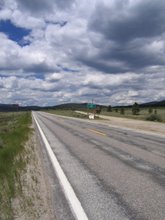Sacred Text: Selections from Ecclesiastes
This week, I’d like to reflect on the place labor has in our lives. We celebrated Labor Day this past weekend, and it’s a good time to take stock of the role plays in our lives.
Labor, identified as our job or career, seems to play a large role in our identities: after all, our jobs are where we spend a large share of our hours. Yet even as Americans are working fewer and fewer hours—down, surprisingly, about 30 hours from a century ago, and even 3 or 4 hours less than in 1965, the work we do seems tightly connected to our identities.
Some of us are in jobs that are expressions of our identities, and some of us are in jobs that pay the bills so we can live out our lives outside of work. Yet the sacred text for today does remind us that our work is transient, fleeting, vapor: a caution for those who would focus on career to the exclusion of the rest of life, and a consolation for those whose work seems meaningless. When it comes to our lives, our work may be part—but is never all—of what we are created for.
There is another kind of labor to consider: not the labor for a paycheck, but the labor we are called to do as Christians. Jesus said that the harvest was plentiful, but the workers were few. He was, unfortunately, quite uncompromising when he called us to follow him: he said to take up our cross, to leave behind family. This seems like labor in the most negative sense: suffering, bearing burdens. But it is the same Jesus who told us that he would bring us life abundantly? Labor for the reign of God cannot be just drudgery—there must be some kind of joy.
The writer of Ecclesiastes, known as the “Teacher”, wisely reminds us all this—all our work, for money and for God— is hevel, which literally means mist or vapor, and is here used to stand for something like transience. It’s traditionally translated as vanity, but that’s not quite right. It’s more like transitoriness or emptiness.
The Teacher is telling us that all our toil—not just money, but even wisdom—is vapor. It won’t last. Our lives will pass, and we could spend them working hard, or becoming a success, and still it will pass.
Some might see this perspective as nihilistic—that nothing matters. But I think that is a mistaken reading of this text. We do “toil and strain”, our work is a vexation, and sometimes even late at night our minds do not rest. But still our life is short, and we’d better recognize that.
We were not created to be slaves to work, whether it be work for our own success, or work for the church, work for charity or work politics. Surely, we are called to labor, but just as surely we are called to enjoy the time we have: to take joy in our family and friends, to come home from work and to eat, and to drink, and to use our fine china.
In the midst of our toil, God invites (not demands, but invites) us to find enjoyment, even in such dark places where it seems impossible. There’s a story told in the book of Acts: the apostle Paul and Silas are in prison, and who knows where they will be brought or what will be done to them. And there, late at night, they sang songs of praise to God. I think the writer of Ecclesiastes would approve. In enjoying life, “God has long ago approved what you do”.
Wednesday, September 3, 2008
Subscribe to:
Post Comments (Atom)

No comments:
Post a Comment